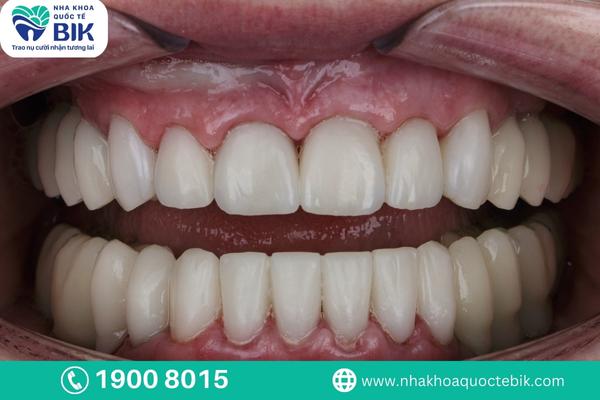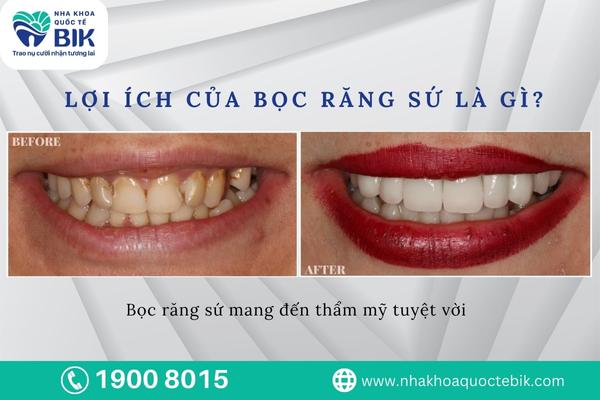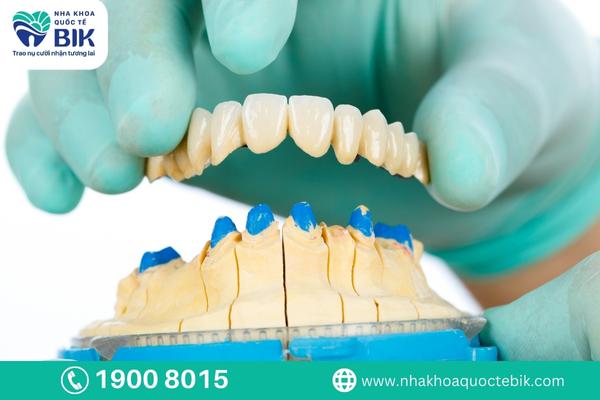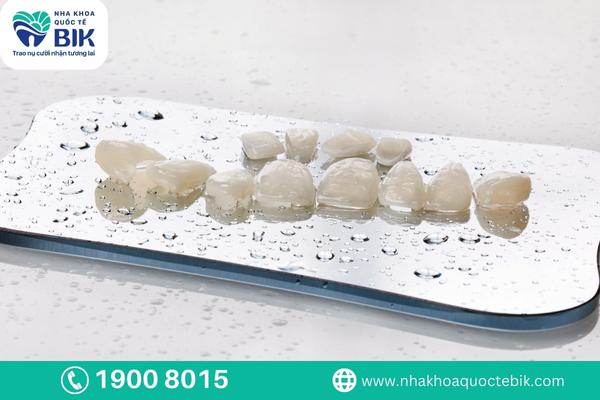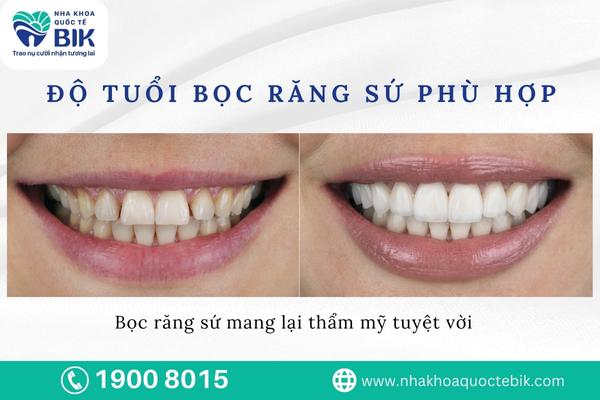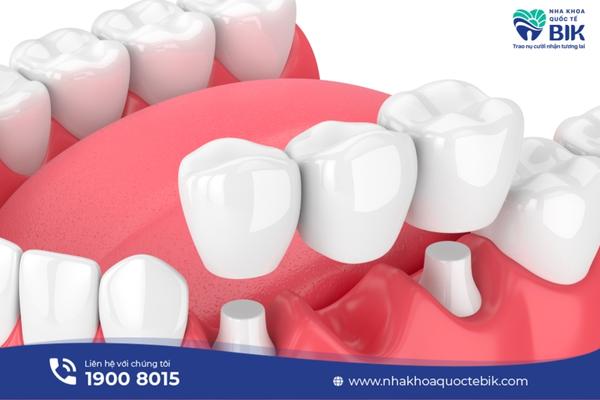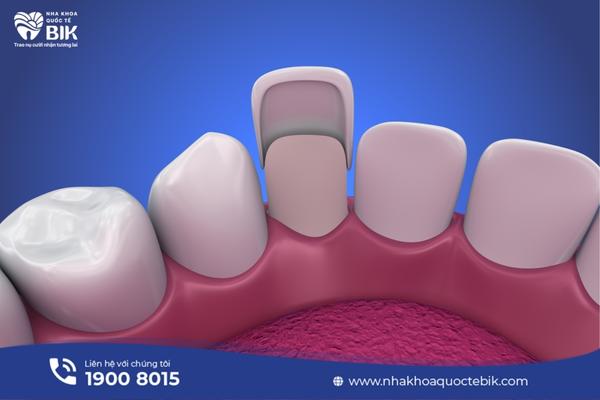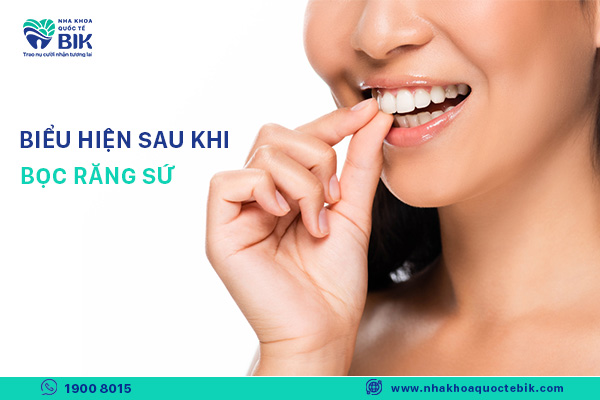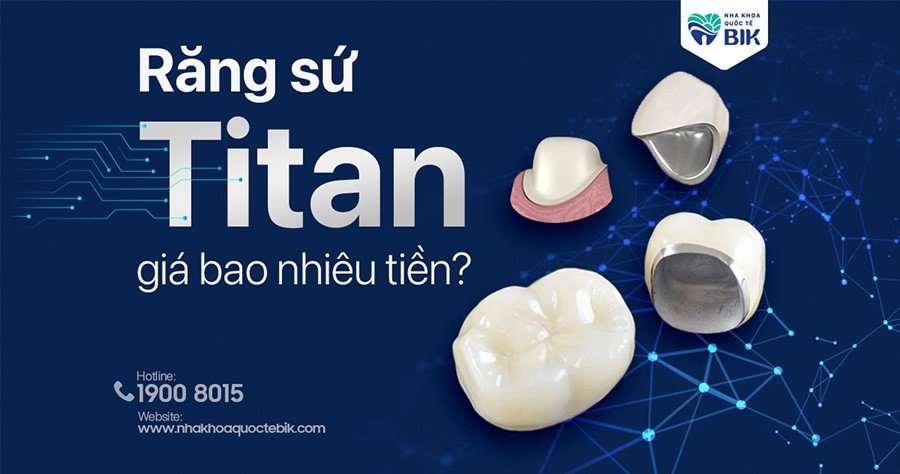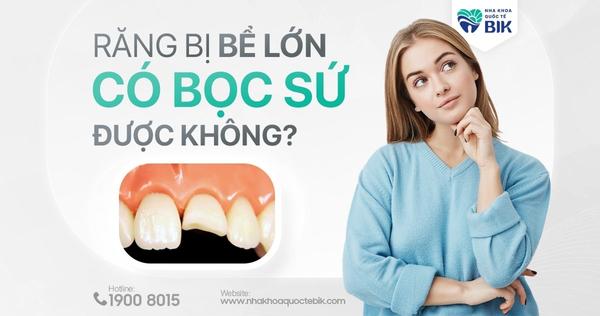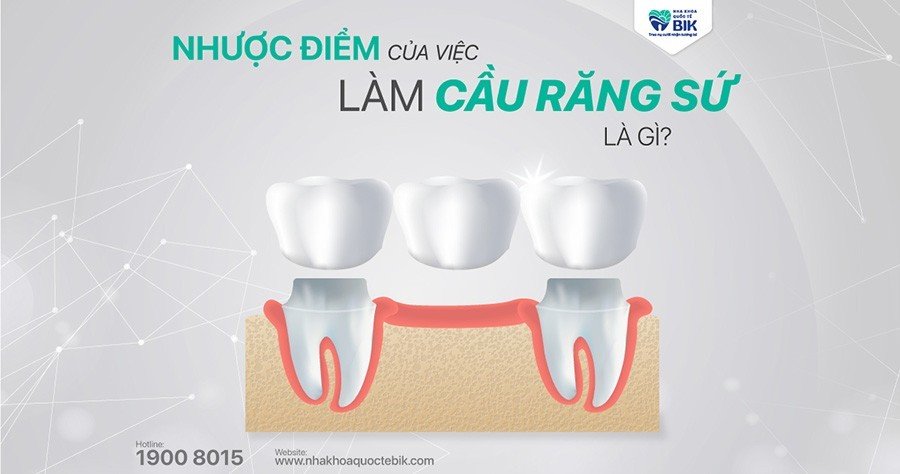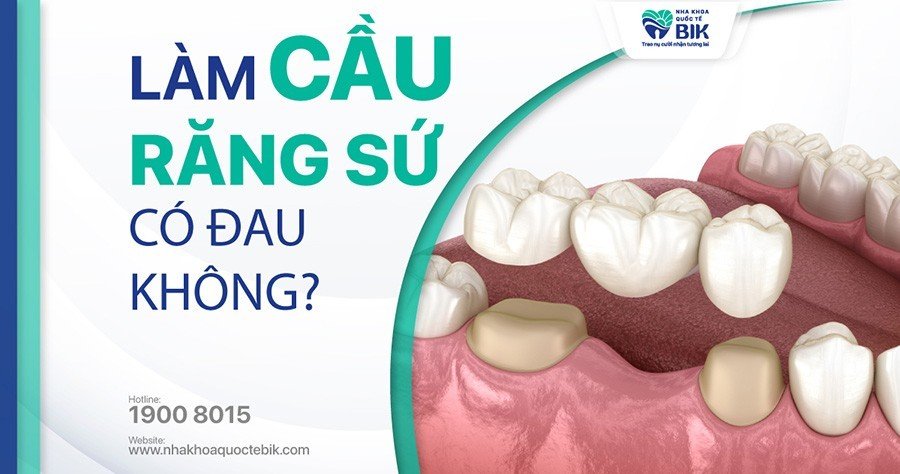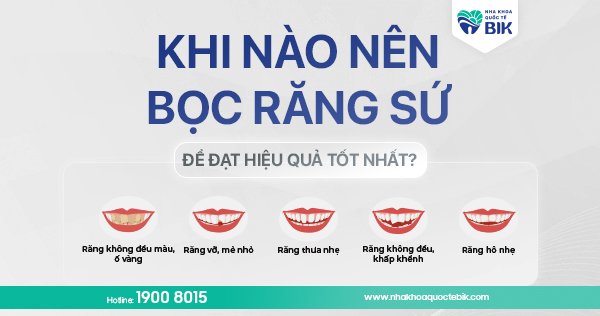
The doctor will prescribe porcelain crowns after a general examination of the oral health and ensure that porcelain crowns provide the best results without causing any effects on the patient’s health. So when should porcelain crowns be used for the best results? Let’s find out with BIK International Dentistry!
1. When should you get porcelain crowns?
Doctors often prescribe porcelain crowns in the following cases:
1.1. Tooth decay
In cases of mild tooth decay, doctors often perform tooth fillings
after treating tooth decay to prevent bacteria, chemicals, and temperature from attacking the inside and damaging the tooth pulp. If the tooth decay is severe and has invaded and damaged the pulp, the tooth filling method is often ineffective, so the doctor will continue to check the condition of the tooth root to perform porcelain crowns.
1.2. Teeth after root canal treatment
Teeth after root canal treatment are often very weak, brittle, and fragile, so if they are not covered with porcelain, they will easily become infected and damaged. Porcelain crowns not only act as a protective layer for teeth from impacts during chewing, but also bring high aesthetic value.
1.3. Protruding and receding teeth
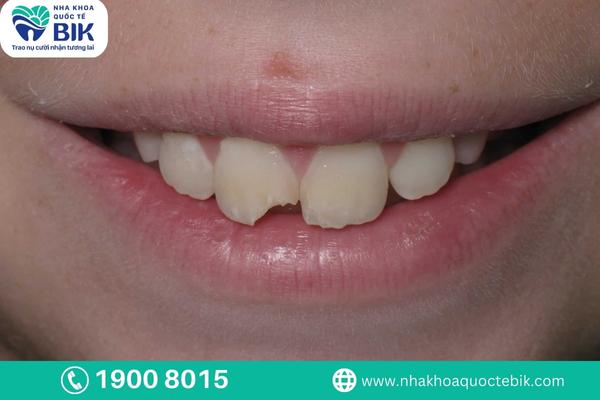
When teeth protrude outward or are slightly receding, grinding the stump and then attaching a porcelain crown on top can resolve the misaligned bite and bring about even, beautiful teeth. However, porcelain crowns can only be applied to cases of protruding and receding teeth caused by the teeth, not the jawbone.
1.4. Uneven teeth
Porcelain crowns can also correct the defect of uneven, tilted, crooked teeth, etc. This method is said to save a lot of treatment time compared to other methods.
1.5. Gap teeth
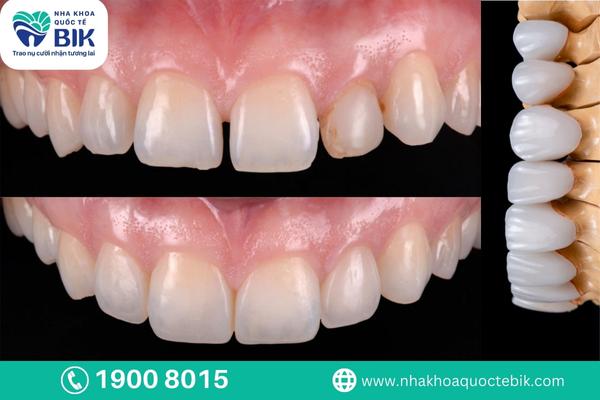
The method of filling gap teeth usually
cannot be applied in cases where the distance between teeth is more than 2mm because the filling is very easy to peel off during chewing. At this time, customers should proceed with porcelain crowns to overcome the appearance defect as well as help the chewing process more smoothly.
1.6. Yellow, heavily stained teeth
Teeth whitening will not be effective in cases of severely stained teeth, so porcelain crowns are the best solution to have beautiful, even-colored white teeth. Severely stained teeth are often caused by many reasons: long-term smoking, eating a lot of dark-colored foods, poor oral hygiene, tetracycline staining due to the use of many antibiotics,…
2. What are the benefits of porcelain crowns?
Aesthetic porcelain crowns bring the following benefits:
2.1. High aesthetics
Porcelain teeth can help overcome many aesthetic defects of the teeth. Designed to be personalized with the shape, color and size completely matching real teeth, porcelain crowns can help users become more confident with a bright, even, beautiful smile.
2.2. Restoring chewing function
When teeth have many defects, the ability to chew is also seriously affected. Most people have to limit hard, crispy foods and sometimes cannot eat their favorite foods.

The above situation will be completely overcome when the customer completes the porcelain crown procedure. Because porcelain crowns are made from high-quality porcelain materials, they are sturdy and can withstand chewing force 5 times greater than real teeth.
2.3. Protecting real teeth
For teeth that have had their pulp removed and become weakened, porcelain crowns are an “armor” that helps protect real teeth from daily chewing force, avoiding broken, chipped or loose teeth.
2.4. Preventing other oral diseases
In addition to aesthetic benefits, porcelain crowns are considered an extremely effective solution to prevent the appearance of oral diseases. Typical diseases include: tooth decay, gingivitis, pulp death, periodontitis, etc.
The reason is because the porcelain layer is firmly covered on the outside to help prevent bacteria from penetrating deep and destroying real tooth tissue.
3. Cases where porcelain crowns should not be used
Despite its outstanding benefits, porcelain crowns are often not applied in the following cases:
3.1. Severe malocclusion due to jawbone structure
Porcelain crowns are often ineffective in cases of severe overbite or underbite due to jawbone structure. At this time, customers will often be prescribed braces to help move teeth to the desired position.
3.2. Teeth are too sensitive
In the process of porcelain crowns, it is mandatory to grind the real tooth stump, so customers with sensitive teeth should not have porcelain crowns. This process will grind away the outer enamel layer and can affect the structure, making the tooth even more sensitive.
3.3. Loose teeth
When an adult’s tooth is loose, it means that the tooth can no longer be used. The tooth root is no longer strong, and grinding the tooth stump only makes the tooth weaker, so it is best to remove it and implant a new tooth.
3.4. Tooth with pulpitis
Teeth with pulpitis cannot be covered with porcelain crowns immediately because over time the tooth will be damaged and can lead to pulp death. In this case, it is necessary to combine root canal treatment before porcelain crowns to ensure safety as well as eliminate pain caused by inflammation.
4. Which type of porcelain crown should I use?
Currently, there are 3 popular types of porcelain crowns on the market:
4.1. Metal porcelain crowns
Metal porcelain crowns are composed of 2 parts made from 2 different materials. The inner frame is made of Chromium-Nickel or Chromium-Nickel alloy and the outer part is covered with a layer of bright porcelain. In terms of function, metal porcelain teeth are still strong enough for customers to eat comfortably, but this type of porcelain teeth is not for those who have high aesthetic requirements. The reason is that after only 2-3 years of use, the metal part will be oxidized, leading to the phenomenon of black gum lines, causing loss of aesthetics and negative effects on health. In addition, metal porcelain teeth also have a black glow when exposed to light.
4.2. Titanium Porcelain Teeth
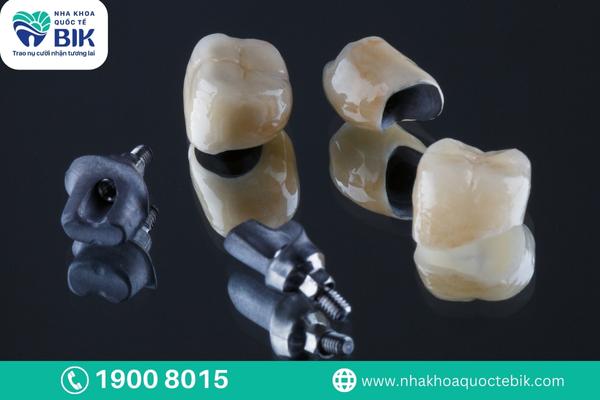
Titanium is a material that is quite commonly used in the dental industry for many different purposes thanks to its benign nature to the body and is completely safe for overall health. Titanium Porcelain Teeth have an inner core made of an alloy containing about 4-6% Titanium and is covered by porcelain material. Titanium porcelain teeth are less susceptible to oxidation, so they have a relatively long lifespan, about 5-7 years.
4.3. All-ceramic teeth
All-ceramic teeth are made from 100% pure ceramic, so they can bring maximum aesthetics because the color can be adjusted to match real teeth. Not only meeting aesthetic needs, all-ceramic teeth also restore almost complete chewing ability thanks to their hardness. In addition, this material does not oxidize in the oral cavity, so it can last up to 25 years and even forever if properly cared for.
5. Appropriate age for porcelain crowns
A general examination of oral health before performing porcelain crowns is very important because the doctor will give specific advice to ensure the health safety of the customer. The most suitable age for porcelain crowns is after the permanent teeth have fully grown and stabilized.
The time for permanent teeth to grow ranges from about 15-16 years old depending on each person’s constitution. If children have not yet grown enough permanent teeth and have cavities or damaged pulp, parents should take their children to a reputable dental facility to receive advice from a doctor.
So not all cases where patients need porcelain crowns can be done. The doctor will indicate when porcelain crowns are needed when it is possible to ensure that this process brings maximum efficiency and does not endanger the patient’s health. To ensure the safety of the porcelain crown procedure, customers should choose a reputable dental facility with a team of experienced doctors.

